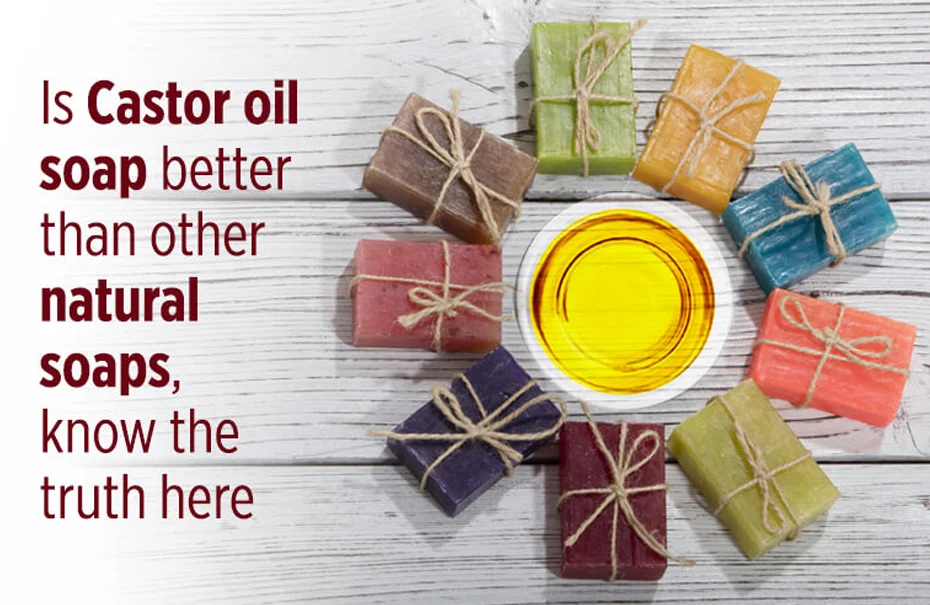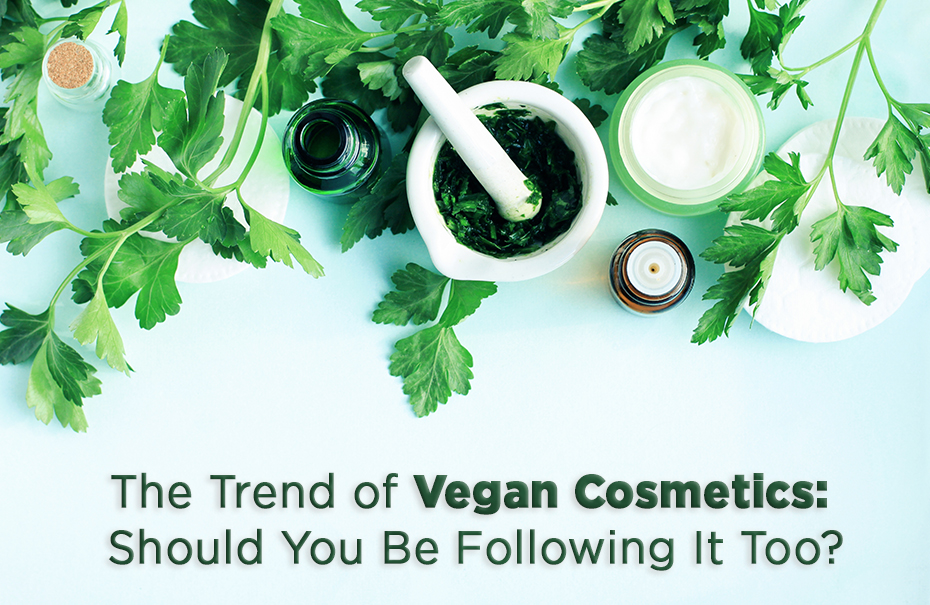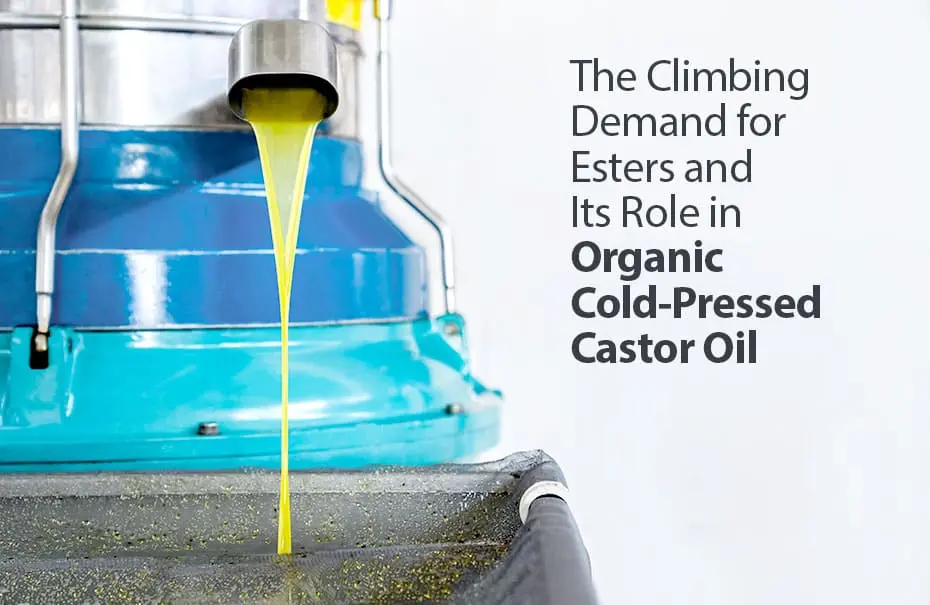Is Castor oil soap better than other natural soaps, know the truth here

Like we choose key ingredients for any recipe, it’s crucial to choose oils for soap recipes. And then, we get to the final product. Different oils impart different qualities into making the final soap. Balancing different oils will create the soap bar that you desired for! In this article, we will shed light on the benefits different soap oils impart on our body.
Castor oil
Pure castor oil is thick and relatively clearer. It increases lather in the soap which a imparts rich and creamy texture leaving a very bubbly feel. Castor oil is a humectant, i.e., it keeps our skin aptly moisturized. Around 10% of castor oil in the soap recipe will make wonders. The fatty-acid make-up of castor oil is unique. It makes the skin plump and supple. The USP of castor oil soap is that it retains moisture in our skin.
Now, let’s quickly know the benefits of other soap oils in our skin.
Almond oil
Almond oil imparts a sweet smell that lasts long. The oil is very light and gets absorbed into the skin effortlessly. It moisturizes the skin too well. But, almond oil does not produce too much lather. It rather produces stable but low lather. Not more than 5-10% almond oil goes into making soft bathing bar. Almond oil finds use in massage bars, lotions, bath bars and sugar scrubs, to say the least. Unlike organic cold pressed castor oil, almond oil does not produce too much lather. This is the major difference in this case.
Avocado oil
Avocado oil is green-colored heavy oil having high percentages of unsaponifiables. Avocado oil is excellent for folks that have a sensitive skin. Just after application, avocado oil feels very heavy on the skin. But with the passage of time, the oil gets absorbed pretty nicely. The bright side is, avocado oil remains high in vitamins and provides ample nourishment to the skin. To top it all, avocado oil has a long shelf life too. Here’s the similarity of castor oil with avocado oil. Both the oils have long shelf lives. But, castor oil absorbs into the skin instantly unlike avocado oil. This is the major point of difference.
Canola oil
Canola oil is another kind of rapeseed oil. The oil is quite economical in soap-making. If you want to be frugal and save some bucks, you can definitely go for canola oil. Olive oil comes pricy, so manufacturers often replace olive oil with canola oil in soap-making. Not more than 15% canola oil goes into the bathing bar. Canola oil imparts low but a rich and creamy lather. Canola is definitely the best is you’re opting for complicated swirls and colors.
Coconut oil
Coconut oil is a primary soap-maker. Coconut oil that is sold & used melts at around 76 degrees centigrade. But there’s another kind of hydrogenated coconut oil having a melting point at 92 degrees centigrade. Both versions produce heavy lather and impart that bubbly feel. Bars that have coconut oil as their primary ingredient are usually a tad harder. Here comes the word of caution. Using more than 30 % coconut oil in the soap can leave your skin dry and patchy. Using it in moderate doses can work wonders. That way it makes for amazing soaps. Now, we come to the similarity of coconut oil to that of castor oil. Both the oils as soap ingredients produce heavy lather. They produce that bubbly feel leaving the skin soft and supple.
Cottonseed oil
This oil might seem a bit unfamiliar to soap-makers. It’s not amongst the primary oils that soap-makers usually use. Recently soap-makers have added this on their list. The oil produces low but creamy lather. It also moisturizes the skin thoroughly. But, on the flip side, it has got a bad repute too. This is because cotton crops are treated with high amount of pesticides that might be discarded by soap-makers. So, there is fair amount of debate around this. One may or may not use cottonseed oil as the primary soap-making oil. Castor oil soap feels very safe on our skin. But, the same cannot be inferred about cottonseed oil.
Hazelnut oil
Hazelnut oil is lovely in lotions and bathing bars. The moisturizing feel that it imparts is very hard to not notice. But the oil is recommended to use in moderate doses. And, do not forget to treat the oil with rosemary extracts before it goes into bathing bars. This is because the oil is a tad fragile and has the repute of going rancid at times. Otherwise, it is amazing and goes into making bathing bombs and lip balms as well. Now, we quickly get to the point of difference. Hazelnut oil has a short shelf life. But, castor oil has a very long shelf life. This is the primary reason why castor oil remains a favorite with soap manufacturers.
Jojoba oil
Jojoba oil is rather liquid wax. It has sebum as a primary chemical composition. Jojoba oil produces low but creamy lather. It has remarkably high absorption rate. The moisturizing quality of jojoba oil is par excellence. Unlike most other oils, jojoba oil is used in luxury bathing bars. Also, jojoba oil has a very long shelf life too. Jojoba oil is excellent for leave on application like lotion and balms. But jojoba oil has a striking similarity with castor oil. Both jojoba oil & castor oil cannot be used for complex swirls.
The crux
Different oils have different unique selling points. But all of them impart some kind of benefit on our skin. If you’re looking for a complete insight into soap-making oils, we would advise you skim through our article. A sneak-peak into this would reveal a lot. And, you can thank us later.



